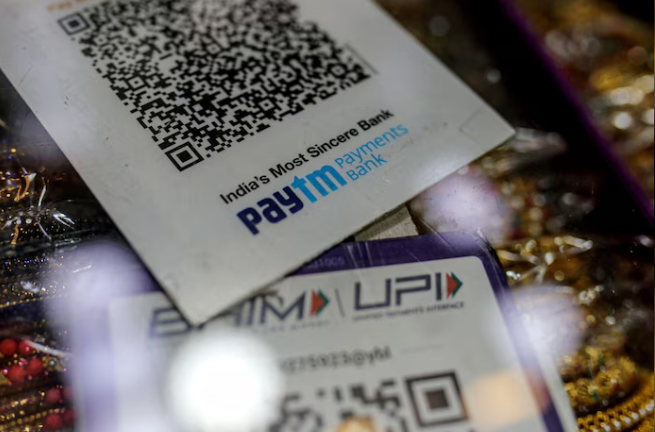Fayez Hoda, Pune
Users are quickly gravitating towards Google and Walmart Inc. from India’s Paytm. This financial technology trailblazer is battling central bank restrictions and the impending shutdown of a key payments subsidiary. According to the National Payments Council of India, the value of Paytm transactions on India’s government-endorsed payment platform fell by 14% to Rs 1.65 trillion ($19.9 billion) in January. On the other hand, the transaction values of Google’s GPay and Walmart-owned PhonePe, which handle a lot more transactions than Paytm combined, increased.
The usage of Paytm is declining, which suggests that users are switching to other providers even before there is a problem with its functioning. Although limitations are scheduled to go into force on March 15, Paytm believes its digital payment systems will remain operational. But since the announcement of regulatory actions in late January, the company’s price has fallen, raising questions about the fintech pioneer’s prospects going forward.
Transaction values for PhonePe and GPay increased by about 7 and 6 percent, respectively, according to NPCI data, but transaction volumes for Paytm decreased. Although the government-backed Unified Payments Interface does not directly benefit businesses, it does provide access to a large customer base for cross-selling products and services like mutual funds and insurance.
Paytm Payments Bank, which handles a large amount of Paytm’s transactions and financial services, was ordered to cease a large chunk of its activities on January 31 by the Reserve Bank of India. Even though Paytm quickly partnered with other banks to keep running, the regulator’s action caused a steep drop in the company’s stock and impacted consumer trust; since late January, shares have dropped by about 50%.Paytm is mobilizing its sales team in response to merchants’ growing concerns in order to calm worries and increase platform usage.
The billionaire founder of Paytm, Vijay Shekhar Sharma, voiced confidence in his company’s ability to overcome regulatory obstacles and become stronger in his first public statements since the RBI’s move.
Sharma’s fintech business includes Paytm Payments Bank as well as Paytm, which is traded as One97 Communications Ltd. The bank is privately held. One97 owns the remaining 51 percent of the bank, with Sharma holding the remaining 51 percent.
